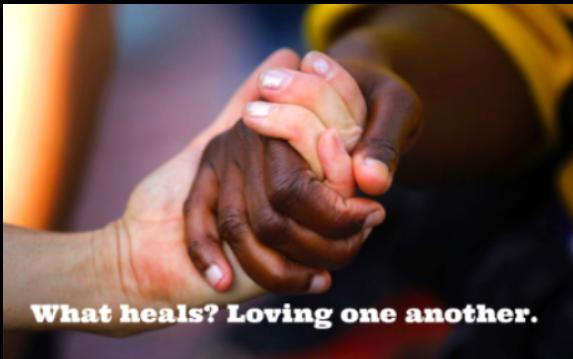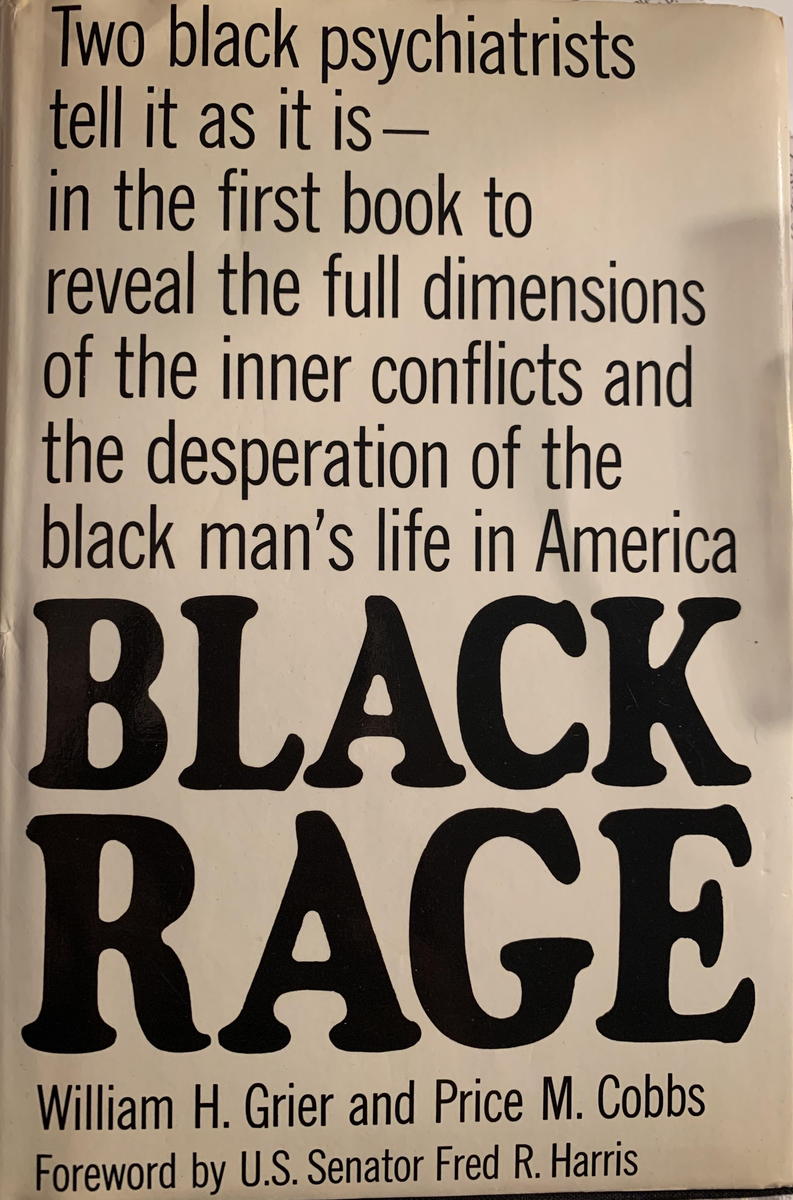

With a spotlight shining again on racial disparities within the American culture, my heart is even heavier these days, especially as I reflect today, Juneteenth.
I was recently looking for a meaningful book to read. I struggled with deciding whether to read a book that takes me away from daily life or finding a book that causes me to think about myself or the world around me. I settled on, BLACK RAGE, by William H. Grier and Price M. Cobbs. This book was written in 1968, but because of the lack of resolution on some of the issues that we are still facing today, this book is still relevant.
I wrestled with how to share the information that the authors mentioned without taking away the weight of the points that they delivered so impressively. I have settled on sharing direct quotes from the book. These quotes are not meant to be read and then quickly left behind. They are meant for you to ponder. You may agree with them. You may not. Both are okay. Meditate on each of them and let your thoughts direct you. Keep in mind the era in which this book was created and the acceptable language that was used at that time.
The book begins with a foreword by U.S. Senator Fred Harris who said the following:
"...the historical inculcation of these perceptions on the minds od Negroes themselves, are at the root of our present troubles. They demonstrate beyond challenge the crippling effects of white American culture on the attempts of Negro Americans to do here what all people everywhere must do if they are to develop fully-to find an identity, a sense of worth, to relate to others, to love, to work, and to create. Black rage is a result of our failure, after 300 years, to make these human values possible."
"Americans characteristically are unwilling to think about the past. We are a future-oriented nation, and facing backward is an impediment to progress. Although these attitudes may propel us to the moon, they are deficient when human conflict needs resolution."
The next quote comes from the chapter of the book titled, The Shadow of the Past. The authors talk about how the past, for African Americans can be seen in their lives today. William and Price go on to describe a scene where black males are waiting for day labor jobs outside of an office building. The authors describe what they see as a truck drives up near the men. They describe how the posture of the men changes and the positive emotional changes that are seen as the men stand, waiting eagerly for the opportunity to work. William and Price go on to describe the probable thoughts of the white man when he pulls up to look over the group of black men. "This one is too thin....that one looks smart-alecky and is probably slow...the boy way in the back there might do." The next quote stood out the most to me about this scene.
"No imagination is required to see this scene as a direct remnant of slavery. Move back in time and this could be an auction block. The manual labor is the same and so is the ritual of selection. The white man involved in the selection feels he is only securing a crew. But, then, so did his forefathers. In addition, the psychic structure of the black man being selected has altered little since slavery. To know this is deeply troubling and frightening."
"After three centuries of oppression the black man is still thought to need a provocateur to inflame him!"
"The culture of slavery was never undone for either master or slave. The civilization that tolerated slavery dropped its slaveholding cloak but the inner feelings remained. The "peculiar institution" continues to exert its evil influence over the nation. The practice of slavery stopped over a hundred years ago, but the minds of our citizens have never been freed."
"Slavery required the creation of a particular kind of person, one compatible with a life involuntary servitude. The ideal slave had to be absolutely dependent and have a deep consciousness of personal inferiority. His color was made the badge of that degradation. And as a final precaution, he was instilled with a sense of the unlimited power of his master. Teachings so painstakingly applied do not disappear easily."
"Because of an inattention to history, the present-day Negro is compared unfavorably with other racial and ethnic groups who have come to this country. Major differences in backgrounds are ignored. The black man was brought to this country forcibly and was completely cut off from his past. He was robbed of language and culture. He was forbidden to be an African and never allowed to be an American. After the first generation and with each new group of slaves, the black man had only his American experience to draw on. For most Negroes, the impact of the experience has been so great as to even now account for a lack of knowledge of their past."
"And while there is sometimes the tendency to attribute everything to white cruelty, there is often the opposite tendency - a determination not to see. They may insist that white oppression has never exerted any influence on their lives, even in the face of such realities as police brutality, job and housing discrimination, and a denial of educational opportunities. It is a powerful national trait, this willful blindness to the abuse of blacks in America. It is a blindness that includes the victim as well as the crime."
We should ask what is likely to galvanize the (black) masses...
Will it be some grotesque atrocity against black people which at last causes one-tenth of the nation to rise up in indignation and crush the monstrosity?
Will it be the example of black people outside the United States who have gained dignity through their own liberation movement?
Will it be the heroic action of a small group of blacks which by its wisdom and courage commands action in a way that cannot be denied?
Or will it be by blacks, finally and in an unpredictable way, simply getting fed up with the bumbling stupid racism of this country? Fired not so much by any one incident as by the gradual accretion of stupidity into fixtures of national policy.
All are possible, or any one, or something yet unthought. It seems certain only that on the course the nation now is headed it will happen."
As we look at our past, at the present, and look to the future, remember, the solution is already known. There is no need to wait for others to gather and provide a solution for the problems of the present or future. What I believe we need to do is apply the solution to every fabric of our lives. The solution begins with this command:
LOVE YOUR NEIGHBOR AS YOURSELF. - Jesus Christ
